Adapting your business to a tougher economic climate
Date
13 May 2024
Share

For business owners and managers, it is an ideal time to proactively assess how the business is performing and whether there are opportunities to make savings without compromising your value proposition or service offering to customers.
It’s no secret that New Zealand is in a more challenging economic cycle now. This tough environment is expected to persist throughout the remainder of 2024. Interest rates remain high for both business and consumer borrowers, but central banks both in New Zealand and globally remain cautious about the tail end of their inflation battles. Interest rates are unlikely to decrease significantly in 2024. For consumer borrowers, higher interest rates have a “lag effect” as borrowers sit on lower fixed rates for a period, only feeling the cash impact as they refix to higher rates. This takes 18-24 months to wash through the economy. The significant jumps in the Official Cash Rate started in November 2022 meaning the full impact of this is just starting to be felt by mortgage holders. Consumers are more worried about their own incomes and employment security. Many of our key export segments such as forestry and sheep are generating very weak returns due to weak demand in the Chinese market. While there are always some bright points, such as strong returns expected for Kiwifruit growers this season, the overall economic downturn is having broad impacts on individuals and businesses alike.
For business owners and managers, it is an ideal time to proactively assess how the business is performing and whether there are opportunities to make savings without compromising your value proposition or service offering to customers. Anything that you can do to optimise cash flow is critical to your continued success.
How you’re financing your business and the assets that you use in it can have a marked effect on cash flow. Funding decisions should not be solely focused on interest rates because lower rates, locked in several years ago, do not always equate to the best outcome for your business.
So, although the COST of interest rates is still a factor in considering what finance option may be best for your business, it is equally important to consider another couple of key factors – STRUCTURE and RISK. Any review of your finance structures is best done proactively before cash flow pressures become evident or reach a crisis point.
The STRUCTURE of your finance can be the most important factor, and which also may have the biggest impact on cash flow. Think about the following points and questions when assessing how your finance fits and helps you achieve your business objectives:
- Cash or Trade Cycle: Is the funding term matched and appropriate for this?
- Useful life of Asset(s): Are asset loans structured in line with the productive and useful life of your assets?
- For older/used assets: Are there any restrictions imposed by the funder, such as large deposits when funding new purchases, or restricting what you can borrow?
- Current cash flow problems: Are current debt repayment structures contributing to this and could a restructure of your debt provide cash flow relief? Often businesses repay debt too quickly for the weaker economic environment. A restructuring of debt over longer terms can help preserve cash.
- Asset Rich but cash poor: Is there an opportunity to use the equity in your business assets to provide liquidity, bolster cashflow, repay high cost debt (including potentially IRD debt) and improve performance, while funding these assets over appropriate terms?
- Terms of Agreement, Conditions and Covenants: Are these restrictive from your current funder? Does your funder hold more security than they need and is this placing your personal assets at risk? Lender appetite for new business is strong at the moment, and businesses with good quality financials may benefit from a market assessment relating to terms and security held by lenders.
Our team regularly assesses business and personal debt structures and provides advice on how to align debt structures to cash flow. If you feel you may benefit from debt restructuring, contact your Finance New Zealand adviser.
Similar Posts
12 January 2026
Asset & Equipment Finance LVRs
Purchasing new vehicles, machinery, or equipment often raises one key question: how much deposit is required? The answer depends on more than just the asset. It comes down to LVRs (Loan to Value Ratio's), structure, and lender, policy & appetite. This article explains how asset and equipment finance LVRs work in New Zealand, and why advice matters.

27 November 2025
The Bottom of the Cycle? What the OCR Cut Means for 2026
Shifting interest rates are reshaping the way businesses finance equipment, vehicles and growth. Understanding these changes can help you make smarter, better-timed funding decisions.


Page Links
Contact us
Finance New Zealand Limited L11 BDO Tower, 19-21 Como Street, Takapuna, Auckland 0622 PO Box 65164, Mairangi Bay 0754 T: (09) 222 0320E: info@financenz.co.nzMember of


Proud Sponsors of Auckland Rescue Helicopter Trust
Copyright Finance New Zealand Ltd 2026



